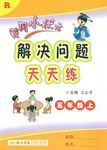题目内容
It is well known that the Japanese people’s love of fish is almost as a bee’s interest in honey.As fish populations were decreasing, fishing companies were forced to fish further and further away from the shore.Then they had a big challenge-how to keep the fish fresh for longer.So they decided to keep the fish stored in freezers on the boats.But the public did not like frozen fish.So again the fishing companies had a new bigger challenge.What they decided to do was to have fish tanks on their boats.After catching fishes, they would put them in the tanks and keep them living there until they got back to shore.But in this protected environment, lacking predators (掠食者),the fish stopped moving around.The Japanese public felt these dull fish did not taste fresh, which had an unpleasant effect upon sales.Once again the fishing companies had an even bigger challenge ...
Stop for a minute! Before we go any further, I would like to ask “What are your challenges?
How do you handle an unexpected challenge?” May I think it this way that you should try to attack your challenges? Conquer(战胜) them with a Swiss Army knife.Take the most proper and simple tool that you can adopt to deal with your situation.
Now back to our story.How did the Japanese finally figure out the fresh fish problem?
Sharks! You might think the same.Sharks were caught and put into the tanks with other fishes.Don’t sharks eat fish? Well, they do eat a few fish, but they did also keep more fish active and alert (警觉的).The fish stay fresh because they are challenged.
Now, try to keep yourself fresh by finding your own shark to offer yourself a challenge in your own business and career.
1.The main reason for the fishing company to fish in the far sea was that .
A.the fish resource near the shore was on the decrease
B.the fishes farther away from the sea tasted fresher
C.people would prefer eating fresh fishes to less fresh ones
D.it was getting harder and harder to keep fishes fresh
2.Which of the following statements is true?
A.Japanese people love honey as much as a bee does.
B.The fish kept in tanks didn’t sell well because of their taste.
C.The fish stored in the protected environment tasted the best.
D.The fish kept in tanks didn’t taste fresh because they died before reaching the restaurant.
3.The underlined part of the last paragraph means “ .”
A.If you went fishing, you might do as the fishing companies did
B.Try to find a big shark, and you will meet your challenge
C.To succeed in life, you should always be ready to meet challenges
D.Sharks are usually compared to the challenges in people’s life
4.The purpose for the author to write the passage is to .
A.tell the readers “no pains, no gains”
B.tell the readers how the Japanese keep the fish fresh
C.advise readers to look for challenges to make progress
D.advise readers to find something difficult to do
ABCC

 黄冈小状元解决问题天天练系列答案
黄冈小状元解决问题天天练系列答案 三点一测快乐周计划系列答案
三点一测快乐周计划系列答案近年来,禽流感频发,一些国家在疫区捕杀所有鸟类。对此,你们班开展了主题班会,讨论结果如下:
|
赞成捕杀者认为 |
反对捕杀者认为 |
你的态度 |
|
防止病毒扩散,威胁人类健康 |
不杀鸟类,不公平,太残忍 |
|
|
2.疫区扩大,不易治愈 |
2. 尽快找到疫苗 |
|
参考词汇:禽流感bird flu;家禽poultry;病毒virus;疫苗vaccine词数: 100左右
It is well-known that bird flu has spread through many countries. _________________________